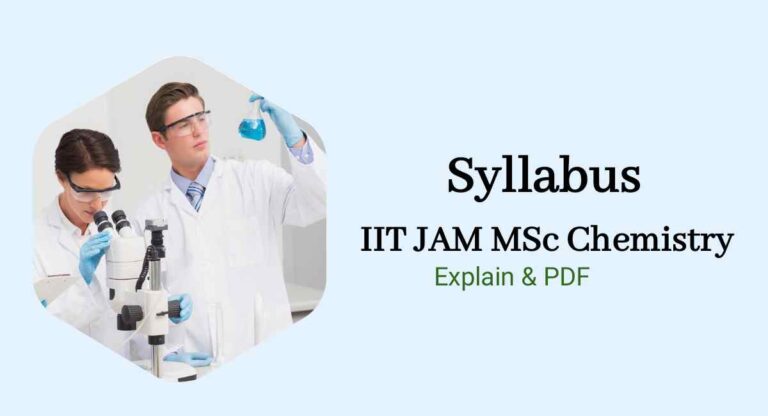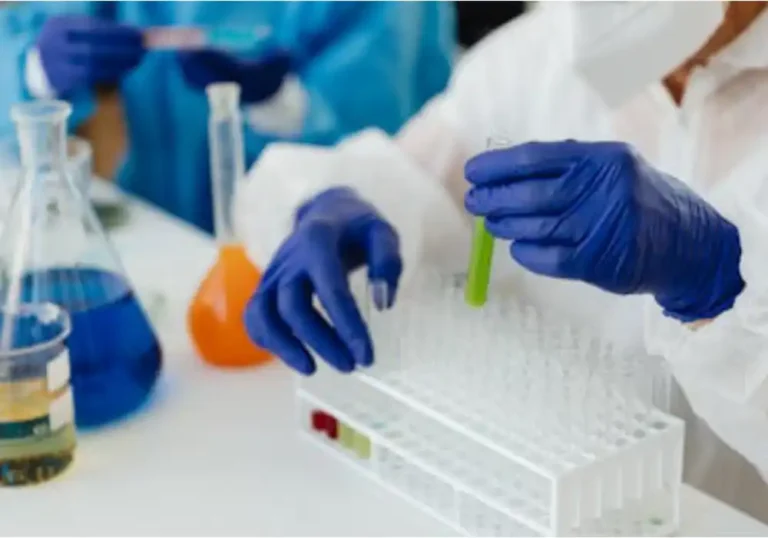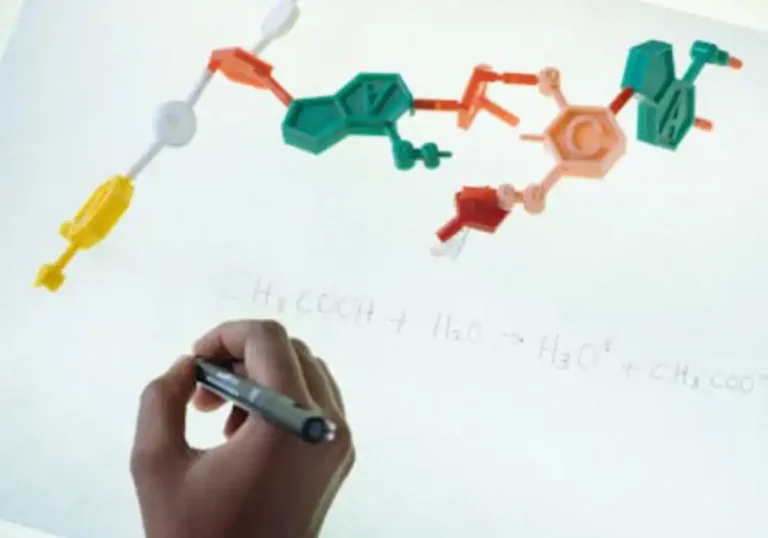How To Prepare For Ap Chemistry Over The Summer 2025
Are you ready for a test? If so, you’re about to dive right into the exciting world of AP Chemistry 2025!
Getting ready for this tough test over the summer can seem impossible, no matter how much you know or how little you know.

Don’t worry, however. This article will show you exactly what you need to do to do well on the test.
We’ll teach you everything you need to know to feel confident when solving even the most difficult chemical equations, from building a strong base in basic ideas to mastering advanced problem-solving methods.
Put on your thinking cap and get ready for a summer of science exploration you’ll never forget!
How To Prepare For AP Chemistry Over The Summer
The Advanced Placement (AP) Chemistry course is known for its rigorous content and challenging exams. Preparing for AP Chemistry over the summer is a wise decision that can set you up for success in this demanding course.
In this article, we will provide you with unique tips and effective solutions to ensure you’re well-prepared when the school year starts.
Here are five unique and detailed tips for preparing for AP Chemistry over the summer:
1. Explore the Periodic Table in Depth:
Approach:
- Dedicate some time to exploring the periodic table in depth.
- Instead of just memorizing it, try to understand the underlying trends and patterns.
- Pay attention to atomic structure, electronegativity, and the periodicity of elements.
Solution: Create a visual representation of the periodic table, highlighting trends in atomic size, ionization energy, and electron affinity. Understanding these trends will help you predict chemical behavior and reactions more effectively.
2. Master Lewis Structures and Resonance:
Approach: Focus on mastering Lewis structures and resonance forms. These concepts are crucial for understanding molecular geometry and bonding.
Solution: Create a set of flashcards with complex molecules and practice drawing their Lewis structures and resonance forms. Look for real-world examples where resonance plays a significant role, such as in the ozone molecule (O3).
3. Explore Real-Life Applications:
Approach: Connect AP Chemistry concepts to real-life applications. Dive into the chemistry of everyday items, such as cosmetics, food additives, or environmental pollutants.
Solution: Choose a specific product or environmental issue that piques your interest and research its chemistry. Investigate the chemical components, reactions involved, and their effects on health or the environment.
This practical approach will make the subject more engaging and relevant.
4. Create a Molecular Modeling Project:
Approach: Take your understanding of molecular structures and bonding to the next level by creating a molecular modeling project.
Build physical models of molecules using model kits or utilize molecular modeling software.
Solution: Select a few complex molecules or compounds and create physical models of them using molecular model kits. Alternatively, explore free molecular modeling software like Avogadro or Chem3D to build 3D representations of molecules.
This hands-on approach enhances your spatial understanding of molecular structures.
5. Investigate Green Chemistry Principles:
Approach: This discourse delves into the fundamental principles of green chemistry, a scientific discipline that emphasizes the reduction of environmental harm caused by chemical processes. This topic is increasingly important in modern chemistry.
Solution: Research green chemistry principles and find examples of how they are applied in various industries, such as pharmaceuticals or agriculture.
Explore the benefits of green chemistry in reducing waste, conserving resources, and promoting sustainable practices.
By incorporating these unique approaches and solutions into your summer preparation for AP Chemistry, you’ll not only gain a deeper understanding of the subject but also make your learning experience more engaging and practical.
These tips will help you stand out in your AP Chemistry studies and develop a strong foundation in the subject matter.
How To Prepare for the AP Chemistry Exam
Preparing for the AP Chemistry exam is a significant undertaking, and including case studies can be a helpful way to reinforce your understanding of key concepts and their real-world applications.
Here’s a guide on how to prepare for the AP Chemistry exam, along with case study examples:
1. Comprehensive Review of Topics:
Start your preparation by reviewing all the major topics covered in the AP Chemistry course, including atomic structure, chemical bonding, stoichiometry, thermodynamics, and more.
- Case Study Example – Chemical Reactions in Environmental Cleanup:
Explore a case study involving the use of chemical reactions to clean up environmental pollutants. For instance, examine how scientists use chemical reactions to treat contaminated water or soil.
2. Practice with Past Exams:
Obtain past AP Chemistry exams and practice with them. This activity aims to acquaint you with the structure of the examination, various question formats, and the limitations of time.
- Case Study Example – Analyzing the Chemistry of Pharmaceuticals:
Investigate a case study involving the chemistry of pharmaceuticals. Analyze the chemical reactions involved in the synthesis of a specific drug and how the drug interacts with the human body.
3. Focus on Problem-Solving Skills:
The AP Chemistry exam often includes complex problems that require critical thinking and problem-solving skills. Practice solving these types of questions to improve your problem-solving abilities.
- Case Study Example – Acid-Base Chemistry in Medicine:
Explore a case study on the use of acid-base chemistry in medicine. Understand how the body’s pH balance is maintained and how drugs like antacids and aspirin interact with acid-base chemistry.
4. Review Laboratory Procedures:
Refresh your knowledge of common laboratory techniques and procedures, including titrations, spectroscopy, and data analysis.
- Case Study Example – Analyzing Food Additives:
Examine a case study involving the analysis of food additives. Learn how analytical chemistry techniques are used to detect and quantify additives in food products.
5. Explore Equilibrium and Kinetics:
Pay special attention to topics related to chemical equilibrium and kinetics. Understand the factors that influence reaction rates and how equilibrium is achieved.
- Case Study Example – Chemical Equilibrium in Industrial Processes:
Investigate how chemical equilibrium is applied in industrial processes, such as the Haber-Bosch process for ammonia production. Explore the factors that affect yield and efficiency.
6. Connect Concepts to Real-World Applications:
Continually connect chemistry concepts to real-world applications. This will help you understand the practical relevance of what you’re learning.
- Case Study Example – Electrochemistry in Renewable Energy:
Dive into a case study on electrochemistry’s role in renewable energy, like the chemistry of fuel cells or lithium-ion batteries. Understand how these technologies work and their environmental impact.
7. Seek Additional Resources:
Consider using supplementary study materials, such as review books, online courses, and interactive simulations, to reinforce your understanding.
- Case Study Example – Analyzing Environmental Impact:
Explore a case study on the environmental impact of chemical processes. This study aims to examine the application of Life Cycle Assessment (LCA) as a method for evaluating the environmental impact of products and activities.
Incorporating case studies into your AP Chemistry exam preparation can make your studies more engaging and practical.
They provide real-world context for the concepts you’re learning and help you see the direct applications of chemistry in various fields.
Additionally, they can deepen your understanding and enhance your ability to apply chemistry principles to novel situations, which is crucial for success on the AP Chemistry exam.
How Should I Prepare For AP Chemistry If I Have Never Taken Any Prior Chemistry Course?
Preparing for AP Chemistry without prior chemistry coursework can be challenging, but it’s certainly possible with dedication and the right approach.
Here’s a step-by-step guide on how to prepare for AP Chemistry from scratch:
1. Understand the Course Requirements:
Start by reviewing the AP Chemistry course description and syllabus provided by the College Board. Understand the topics, concepts, and skills that are covered in the course.
2. Get the Right Materials:
Obtain a high-quality AP Chemistry textbook designed for self-study. Look for books that include practice questions and explanations.
3. Begin with Basic Chemistry:
Since you have yet to take any prior chemistry courses, start by building a strong foundation in basic chemistry concepts. Focus on topics like atomic structure, the periodic table, chemical bonding, and stoichiometry.
4. Study Regularly:
Dedicate a consistent amount of time each day or week to studying chemistry. Regular practice and review are crucial when you’re starting from scratch.
5. Utilize Online Resources:
Take advantage of online resources like Khan Academy, Coursera, and YouTube. These platforms offer free tutorials and lessons on introductory chemistry topics.
6. Work Through Practice Problems:
Practice solving chemistry problems regularly. Use your textbook’s practice questions, and seek additional problems online or from other textbooks. Focus on understanding the problem-solving process.
7. Create Visual Aids:
Use visual aids like flashcards, diagrams, and concept maps to help you grasp and remember key concepts.
8. Understand Mathematical Concepts:
Chemistry often involves mathematical concepts. Make sure you have a good grasp of basic algebra, including equations, ratios, and unit conversions.
9. Seek Help When Needed:
Don’t hesitate to ask for help when you encounter challenging topics. Consider finding a tutor or reaching out to your AP Chemistry teacher for guidance.
10. Study Groups:
Form or join a study group with peers who are also preparing for AP Chemistry. Discussing concepts with others can be beneficial.
11. Focus on Key Topics:
Given your limited time and the comprehensive nature of the AP Chemistry exam, prioritize the most important topics, such as stoichiometry, chemical reactions, and atomic structure.
12. Use the Summer for Intensive Study:
If you have several months before the AP exam, consider dedicating the summer to intensive study. This can help you catch up on the necessary coursework.
13. Take Practice Exams:
As you progress in your studies, take practice AP Chemistry exams to get a sense of the exam format and assess your readiness.
14. Stay Persistent and Positive:
Preparing for AP Chemistry from scratch is a challenging endeavor. Stay persistent, remain positive, and believe in your ability to learn and master the material.
15. Seek Additional Support:
Consider enrolling in an online AP Chemistry course or finding local resources, such as chemistry classes at a community college, to supplement your self-study efforts.
Remember that while preparing for AP Chemistry without prior coursework is challenging, it’s not impossible. With a structured study plan, dedication, and the right resources, you can build a solid foundation and increase your chances of success on the AP Chemistry exam.
How Can I Prepare For AP Chemistry This Summer Without Having Taken Any Chemistry Classes?
Preparing for AP Chemistry over the summer without prior chemistry classes can be a challenging yet achievable task.
Here’s a comprehensive guide with some unique and concept-focused approaches:
1. Start with a Strong Foundation:
Begin by developing a strong foundation in fundamental chemistry concepts. Familiarize yourself with:
- Atomic structure: Understand the structure of atoms, including protons, neutrons, electrons, and atomic models (e.g., Bohr model).
- Chemical bonding: Learn about ionic, covalent, and metallic bonds, as well as Lewis dot structures.
- The periodic table: Explore the organization of elements, including trends in atomic size, electronegativity, and reactivity.
- Stoichiometry: Understand the mole concept, balancing chemical equations, and solving stoichiometry problems.
2. Comprehensive Textbooks and Online Resources:
Invest in a comprehensive AP Chemistry textbook designed for self-study. Additionally, utilize online resources such as Khan Academy, Coursera, and MIT OpenCourseWare, which offer free chemistry courses and lectures.
3. Explore Real-World Applications:
- To make chemistry more engaging and relatable, explore real-world applications of chemistry concepts. For example:
- Investigate how chemical reactions are used in everyday life, such as in food preparation or environmental processes.
- Research the chemistry behind common household products like cleaning agents, cosmetics, and medications.
4. Interactive Simulations:
Use interactive chemistry simulations and virtual labs to visualize complex concepts. Websites like PhET Interactive Simulations offer a wide range of interactive chemistry experiments.
5. Build Concept Maps and Mind Maps:
Create concept maps or mind maps to organize and connect chemistry concepts visually. This technique can help you see the relationships between ideas and improve retention.
6. Problem-Solving Skills:
Develop strong problem-solving skills, a critical aspect of success in AP Chemistry. Practice solving chemistry problems regularly and break down complex problems into smaller, manageable steps.
7. Molecular Modeling:
Use molecular modeling software like Avogadro or Chem3D to build 3D representations of molecules. This hands-on approach helps you understand molecular structures.
8. Unique Study Habits:
Experiment with unique study habits tailored to your learning style. For instance, try teaching the material to an imaginary student or recording yourself explaining concepts as if you were teaching them to someone else. This technique reinforces your understanding.
9. Explore Environmental Chemistry:
Study environmental chemistry topics, such as pollution, climate change, and sustainable practices. Understanding how chemistry relates to environmental issues can make the subject more relevant and interesting.
10. Create Chemistry Projects:
As a summer project, consider conducting simple chemistry experiments at home. Document your findings and observations in a lab notebook. This practical experience can deepen your understanding of chemical reactions.
11. Attend Chemistry Workshops or Webinars:
Look for online chemistry workshops or webinars. These events can provide additional insights, introduce you to experts, and give you opportunities to ask questions.
12. Consistent Practice and Self-Assessment:
Consistently practice and self-assess your knowledge by taking practice quizzes and tests. Online platforms often offer interactive quizzes to test your understanding.
13. Stay Inquisitive and Curious:
Cultivate a curious mindset. Ask questions and seek answers to deepen your understanding of chemistry concepts.
14. Seek Help and Guidance:
Don’t hesitate to reach out to online forums, chemistry communities, or your future AP Chemistry teacher for guidance and assistance when needed.
By following these unique and concept-focused strategies, you can prepare for AP Chemistry over the summer effectively and develop a solid foundation in the subject. Remember that dedication, curiosity, and a proactive approach are key to success in AP Chemistry, even if you have yet to take prior chemistry classes.
Strategic Summer Study Plan for AP Chemistry Success
Creating a strategic summer study plan for AP Chemistry success involves breaking down the syllabus into manageable sections and allocating specific days for each topic.
Below, I’ve outlined a detailed study plan for AP Chemistry, including a syllabus divided into days:
Summer Study Plan for AP Chemistry Success
Syllabus Overview:
The following syllabus divides the key topics of AP Chemistry into 8 weeks, with each week focused on specific concepts. Adjust the schedule based on your starting point and the amount of time you can dedicate each day.
- Week 1 – Basic Concepts and Atomic Structure:
- Days 1-2: Introduction to AP Chemistry and review of the scientific method.
- Days 3-4: Atomic structure, including atomic models and electron configurations.
- Days 5-7: Periodic table trends, including atomic radius, ionization energy, and electronegativity.
- Day 8: Self-assessment and review.
- Week 2 – Chemical Bonding and Molecular Structure:
- Days 9-11: Types of chemical bonds, ionic and covalent bonding.
- Days 12-15: Molecular geometry and VSEPR theory.
- Day 16: Self-assessment and review.
- Week 3 – Stoichiometry and Chemical Reactions:
- Days 17-19: Stoichiometry, including mole concepts and balancing chemical equations.
- Days 20-22: Types of chemical reactions (acid-base, redox, etc.).
- Day 23: Self-assessment and review.
- Week 4 – Chemical Thermodynamics and Kinetics:
- Days 24-26: Thermodynamics, including entropy and Gibbs free energy.
- Days 27-29: Chemical kinetics and rate laws.
- Day 30: Self-assessment and review.
- Week 5 – Chemical Equilibrium:
- Days 31-34: Chemical equilibrium, Le Chatelier’s principle.
- Day 35: Self-assessment and review.
- Week 6 – Acids and Bases:
- Days 36-38: Acid-base theories, pH, pOH, and titrations.
- Day 39: Self-assessment and review.
- Week 7 – Electrochemistry and Chemical Kinetics:
- Days 40-42: Electrochemistry, redox reactions, and electrochemical cells.
- Days 43-45: Advanced topics in chemical kinetics.
- Day 46: Self-assessment and review.
- Week 8 – Organic Chemistry and Review:
- Days 47-49: Introduction to organic chemistry, including functional groups.
- Days 50-52: Review of major topics, practice exams, and timed quizzes.
- Days 53-56: Final review and practice exams.
- Day 57: Relax and rest.
General Tips:
- Consistency: Stick to your daily schedule and allocate sufficient time for each topic.
- Practice: Solve practice problems regularly to reinforce your understanding.
- Review: Periodically revisit earlier topics to maintain retention.
- Self-Assessment: Take practice AP Chemistry exams and quizzes to gauge your progress.
- Seek Help: Don’t hesitate to ask for help from teachers or online resources if you encounter difficulties.
This strategic summer study plan for AP Chemistry success provides a structured approach to cover the entire syllabus systematically.
Adjust the pace to your learning style and consider allocating more time to challenging topics. Remember to maintain a balance between study and relaxation to stay motivated and focused. Good luck with your AP Chemistry preparations!
Conclusion Points
In conclusion, getting ready for the AP Chemistry test over the summer is a smart and useful way to deal with this difficult class.
Students can build a good understanding of chemistry concepts and learn how to solve problems by using tools like review books, online practice quizzes, and video tutorials.
Additionally, using the summer break to do hands-on chemistry projects and other activities related to the subject can help students learn more and become more interested in it.
Remember that anyone can do well in AP Chemistry, even if they have never taken chemistry before, as long as they work hard and stick to their study plan.
Why wait, then? Prepare now for the summer and be ready to do well in AP Chemistry!
FAQs
1. What are some summer activities that will help me get ready for AP Chemistry?
- Go over important ideas from past chemistry classes.
- Learn about the AP Chemistry course material and how the test is set up.
- Get better at balancing reactions and answering chemical equations.
- Learn more about atomic structure and recurring trends.
2. Are there any suggested study guides or tools for getting ready for AP Chemistry?
The formal course and exam description for AP Chemistry from the College Board.
- In this inquiry, I would like to evaluate the merits of educational resources such as the AP Chemistry textbook authored by Barron and the AP Chemistry Exam guidebook authored by Princeton Review.
- Online tools like Khan Academy, which has a lot of video lessons and practice questions.
3. In what ways is it important to go over basic chemistry issues again before starting AP Chemistry?
You should definitely go over basic topics again because they are the building blocks for more advanced ideas in AP Chemistry.
Before starting AP Chemistry, you should really understand things like stoichiometry, atomic structure, bonding, and chemical processes.
4. Should I spend my summer training time learning specific equations or formulas?
- Memorizing numbers is important, but it’s also important to understand how they work and where they come from.
- Learn important equations that connect to the main ideas in electrochemistry, thermodynamics, kinetics, and equilibrium.
5. What can I do to get better at handling problems for the AP Chemistry test?
- Do much practice handling different kinds of problems from books or the internet.
- Know the step-by-step process you need to use for each type of question.
- Look at what you did wrong, learn from it, and get help if you need it.
6. Is it important to do experiments at home while getting ready for summer?
You don’t have to do experiments at home, but doing them can help you learn more about lab methods and solidify theoretical ideas.
But make sure you follow safety rules and talk to your teacher or a professional before you handle explosives.
7. How should I make the best use of my time as I study for the AP Chemistry test?
- Make a study plan with set times for practicing tests, going over theoretical material, and solving problems.
- Break up your study material into manageable parts and make goals that you can reach.
- Make difficult topics a priority, but also make time to go over and strengthen things you’ve already learned.
8. How can I keep myself going while I study for AP Chemistry this summer?
- Write down clear goals and keep in mind the good things that will happen if you get good grades on the test, like getting college credit or moving up in the class.
- Get together with other people to study or find a study buddy to hold each other accountable and keep you going.
- To keep from getting burned out, take breaks, do things you enjoy, and keep a good work-life mix.





